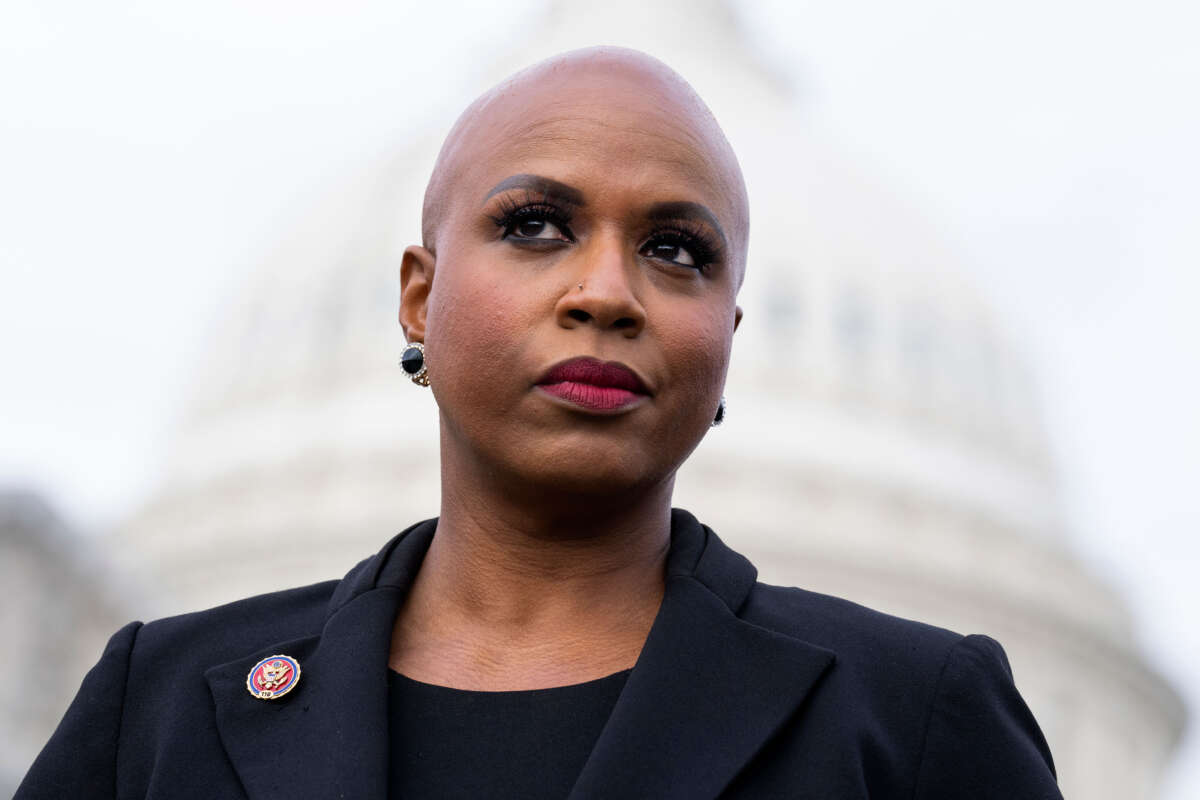As Republicans pursue a wave of book bans across the country seeking to censor Black history and LGBTQ representation, Rep. Ayanna Pressley (D-Massachusetts) has introduced a bill that would classify many of these bans as violations of federal civil rights laws.
Introduced last week, the Books Save Lives Act would make the disproportionate exclusion of books that include content on certain populations in a library that receives federal funding a violation of federal laws like the Civil Rights Act, the Americans with Disabilities Act, or another applicable civil rights law. Under the bill, the Government Accountability Office would be directed to create a report on the effect that recent book bans in public libraries have had on affected communities.
Other steps include requiring that public and school libraries have a diverse book collection, and requiring that primary and secondary school libraries have qualified librarians on staff.
The bill was introduced in response to books being banned at a record pace across the U.S., with books by or about LGBTQ people or Black people particularly under attack. This movement is being fueled by conservative dark money groups and far right lawmakers seeking to advance discrimination against people and books they disagree with under the guise of “parental rights.”
“Rather than honor the brilliance and diversity of our authors, illustrators, and librarians, Republicans are focused on further marginalizing people who already face systemic discrimination in our society — including people of color, the LGBTQ+ community, religious minorities, and people with disabilities — through discriminatory book bans,” Pressley said in a press release. “Every reader deserves to see themselves reflected in our literature.”
The bill has 28 cosponsors in the House, including progressive lawmakers like Representatives Jamaal Bowman (D-New York), Alexandria Ocasio-Cortez (D-New York) and Ilhan Omar (D-Minnesota). It has also been endorsed by education advocacy groups We Need Diverse Books, PFLAG National, Florida Freedom to Read Project and Color Of Change.
“This legislation is critically needed to ensure that school libraries reflect the diversity of our world and to combat the book banning movement that has already removed thousands of diverse titles from school shelves,” said We Need Diverse Books Executive Director Caroline Richmond in a statement. “BIPOC and LGBTQIA+ children are especially vulnerable to self-harm and have some of the highest rates of attempted suicide in the country. When these kids cannot see themselves in the books that they read, they learn the powerful lesson that their stories and their lives don’t matter.”
We Need Diverse Books began an initiative called “Books Save Lives” in 2022 in response to the book ban wave.
In the 2022 to 2023 school year, PEN America recorded 3,362 instances of books banned across the U.S. Of these, 30 percent of the books concerned LGBTQ characters or themes, while 30 percent discussed race or racism or simply contained a character of color. The American Library Association found, meanwhile, that book bans have been occurring faster than ever this year, with a 20 percent increase in book ban challenges in the first eight months of 2023 over the same time period in 2022.
“As a student, the library was my second home. I discovered stories that opened up my world and my understanding of myself on the library shelves,” said Maia Kobabe, author of Gender Queer: A Memoir. Gender Queer is a graphic novel about Kobabe’s experience with gender and sexuality in their adolescence, and has been the subject of many book bans. “I support the Books Save Lives Act because I want future young people to see themselves and their world reflected fully and accurately in their libraries.”
Media that fights fascism
Truthout is funded almost entirely by readers — that’s why we can speak truth to power and cut against the mainstream narrative. But independent journalists at Truthout face mounting political repression under Trump.
We rely on your support to survive McCarthyist censorship. Please make a tax-deductible one-time or monthly donation.
